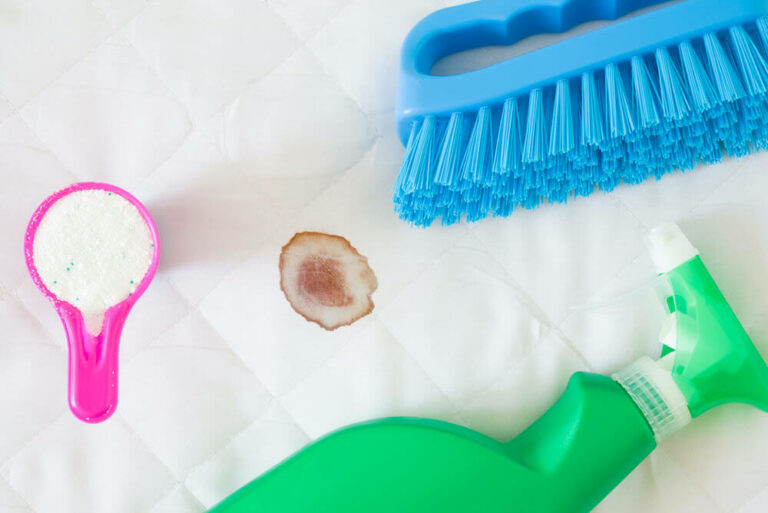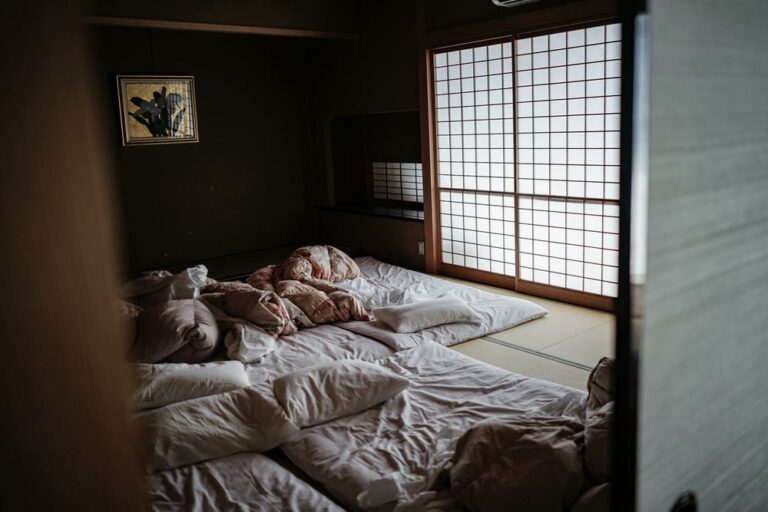When you have too many drinks, you suddenly want to curl up in bed and dream but the sedative and depressant properties of alcohol can cause sleepiness and deep sleep once you’re asleep. You may feel sleepy and groggy the next day when you drink too much alcohol because it messes with your body’s circadian rhythm, the natural process that regulates your daily sleep-wake cycle.
Everyone wants to wake up fresh after the REM stage following a good night’s sleep cycle with all the stages at the right intervals. However, the sedative effects of alcohol change the way we sleep and the state in which we awaken.
In this article, we will answer your questions regarding disrupted sleep patterns caused by alcohol consumption and how sufficient REM sleep is key to feeling refreshed the next day.
What Is the Difference Between Being Drunk and Being Sleepy?
In addition to sleepiness, being drunk often causes a person to feel dull, which is different from being sleepy. Sleeping after being naturally sleepy gives you sound sleep.
In contrast, when drinking alcohol, sleep becomes somewhat ineffective. It can lead to severe sleep disorders such as sleep apnea (a condition in which breathing is difficult and breathing cycles may be interrupted while sleeping).
Is It Normal to Get Tired After Drinking Alcohol?
After drinking alcohol, you may feel tired, and this is quite normal. However, multiple alcoholic drinks on a night out may affect the quality of your sleep and lead to fatigue the next day, which can make things a bit stressful. Drinking too much before sleeping will make it difficult for you to perform daily, routine tasks the next day as you won’t feel rested.
It takes more time and effort on your body’s part to overcome the slowing down of your central nervous system that’s caused by drinking too much alcohol. It follows that it will take your body a while to get back to a normal, active state. In addition, you become tired and incapable of doing anything after drinking high concentrations of alcohol.
Why Do People Feel Tired After Drinking Alcohol?
According to Statista, there’s been a 17% increase in alcohol and drug consumption during the pandemic. This could easily have added to the general tiredness among the population. In addition, people are taking more nightcaps, which are another cause of feeling fatigue the next day.
The effect of alcohol snowballs and causes additional problems, such as the rebounding effect (keeping the body in the previous state of stress or relaxation), less REM sleep, and more bathroom visits during the night that affect sleep and make you super dull the next day. Plus, the sedative effect of alcohol depresses the mind and neural activities, resulting in reduced body function and ultimately, tiredness.
Another potential danger of drinking larger amounts of alcohol is worsened sleep apnea due to relaxed muscles. Drinking too much alcohol also makes you less energetic as there’s an insufficient supply of blood to the brain and body.
Moreover, alcoholic drinks increase blood flow in the pancreas (islets), causing it to produce more insulin and reducing blood sugar levels. That, in turn, not only makes you more tired but also leaves you feeling weak. As you can see, there are lots of ways that too many servings of alcohol can make you feel tired.
How Can You Tell When You Are Tired Due to Alcohol?
We all feel tired sometimes. However, a few specific physical symptoms can indicate fatigue caused by drinking. The symptoms include puffy eyes, a headache, dehydration, nausea, and others.
Alcohol-induced headaches are caused by dehydration and increased blood vessels in the brain. Similarly, you will feel nausea and may end up vomiting as your stomach tries to remove the alcohol from your stomach.
How Does Alcohol Affect Your Body?
Alcohol use leads to disturbed circadian rhythms that include mental, behavioural, and physical changes that may continue for a full 24 hours, or a sleep and wake cycle.
People who drink too many glasses of alcoholic beverages may suffer from reduced melatonin levels, which make falling asleep more difficult and can seriously damage healthy sleep patterns.
What’s more, regularly consuming too many servings of alcohol can have a negative effect on your mental health and disrupt the functioning of your physical body.
Some negative effects that alcohol can have on your body organs include:
- Pancreatic problems. In addition to low blood sugar levels in the body, alcohol use causes the pancreas to generate toxins and acids, which can result in pancreatitis (a condition in which the blood vessels swell and inflame to a life-threatening stage).
- Liver inflammations such as cirrhosis, alcoholic hepatitis, fibrosis, and fatty liver are also caused by heavy drinking. These problems disturb the whole digestive system and prevent the proper digestion of food.
- Heart disease. Drinking large amounts of alcohol is the root cause of many heart diseases such as arrhythmias, high blood pressure, strokes, and cardiomyopathy. Continuous heavy drinking damages your heart significantly and might be a reason for early death.
- Mental health. The brain is also affected by alcohol consumption. Drinking alcohol hinders the neural pathways and changes the brain’s anatomy. These changes may affect the behaviour and mood of heavy drinkers and make them incapable of doing simple tasks. It can also lead to degraded coordination of movement.
- The immune system (a barrier to pathogens), which protects our internal organs and ensures a healthy life, also gets affected due to alcohol use. Alcohol’s sedative effect weakens your immunity and lets various viruses and bacteria attack your body. Diseases such as tuberculosis and pneumonia are more likely to occur in people who drink alcohol in large quantities. However, even if you drink a few extra glasses at special events, your immune response will be slower while you’re inebriated.
- Diuretic problems. Due to its diuretic nature, alcohol causes the kidneys to produce more urine than usual. It also releases sweat, which makes your body dehydrated.
Why Do We Get Tired After Drinking Alcohol?
Suppose you are having a great time hanging out with friends and drinking countless shots of alcohol. But then, you start feeling dizzy or sleepy all of a sudden. Well, this is because of the depressant (alcohol) that has started its journey inside you by slowing down your central nervous system.
As you start drinking alcohol, it moves into the bloodstream, making its way up to the brain and disconnecting the neural connections. This reduced interaction between brain and body causes the body to feel relaxed, sleepy, and then tired. However, if the neurological functioning experiences a forceful shut down (a more significant impact from too much alcohol), it could lead to major problems like intoxication.
In a nutshell, after having a few shots, your whole body gets relaxed and becomes sleepy more quickly. But people with a high tolerance for alcohol might not feel sleepy after two or five shots; instead, they would require a higher quantity to feel relaxed and inebriated. Thus, it’s common to feel sleepy while drinking alcohol.
How Does Alcohol Make You Sleepy?
Alcohol binds to the GABA receptors in the brain, despite its sedative effects. It is a neurotransmitter that calms feelings of anxiety by triggering the adrenal gland to release hormones that adapt the fight mechanism for dealing with the situation. Approximately 80% of neurons contain GABA receptors.
Also, when alcohol binds itself to the GABA receptors in the brain, it begins to replicate GABA function. Depending on your health situation, this alcohol interference can result in a relaxed or sleepy state.
GABA functionality is also increased by alcohol, and it’s the primary cause for the blockage of neural pathways and the limiting of other neural activities.
However, remember that GABA is not produced by alcohol; instead, alcohol copies its functionalities which slows down the brain activities and leads to sleep.
How Can You Avoid Getting Sleepy When Drinking?
To stay active despite drinking alcohol, you need to keep track of the amount you consume. The rebounding effect occurs when you cannot recall how much alcohol you have consumed.
As a result, you become sleepy. You can limit the effects of alcohol on your sleep patterns by drinking moderately. Eating more carbs lowers the absorption of alcohol, so it can also help you sleep better after drinking.
You can also avoid feeling sleepy if you drink a lot of water. Drinking water might cause more urinating, but it’s way better than filling your body with alcohol alone, which has a higher chance of disturbing your sleep patterns. Plus, drinking a glass of water between alcoholic beverages during hangouts will make you feel less sleepy the next day.
Takeaway
Hopefully, you’ve learned a bit from our article on alcohol and its impacts on sleep patterns. However, a quick overview of the following points might help you with better sleep and a healthier lifestyle.
- Alcohol’s sedative effects can cause sleepiness and probably make you feel tired.
- A night out where you had many drinks may cause sleep apnea and sleep disorders.
- Drinking water, eating carbs, and drinking moderately will help you avoid sleepiness the next day.






